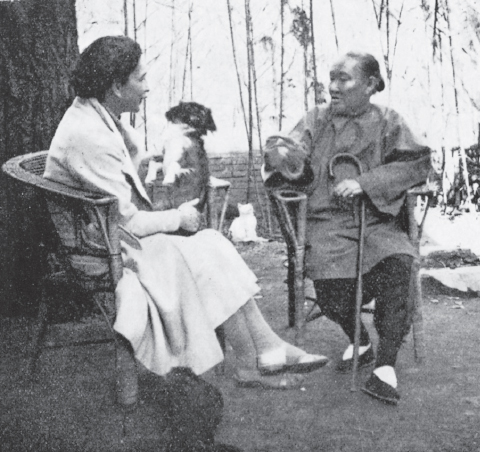Individuals in Society: Ning Lao, a Chinese Working Woman

THE VOICE OF THE POOR AND UNEDUCATED IS OFTEN muffled in history. Thus A Daughter of Han, a rare autobiography of an illiterate working woman as told to an American friend, Ida Pruitt, offers unforgettable insights into the evolution of ordinary Chinese life and family relations.
Ning Lao was born in 1867 to poor parents in the northern city of Penglai on the Shandong Peninsula. Her foot binding was delayed to age nine, since she “loved so much to run and play.” She described the pain when the bandages were finally drawn tight: “My feet hurt so much that for two years I had to crawl on my knees.”* Her arranged marriage at age fourteen was a disaster. She found that her husband was a drug addict (“in those days everyone took opium to some extent”) who sold everything to pay for his habit. Yet “there was no freedom then for women,” and “it was no light thing for a woman to leave her house” and husband. Thus Ning Lao endured her situation until her husband sold their four-
Taking off her foot bandages, Ning Lao became a beggar. Her feet began to spread, quite improperly, but she walked without pain. And the beggar’s life was “not the hardest one,” she thought, for a beggar woman could go where she pleased. To better care for her child, Ning Lao became a servant and a cook in prosperous households. Some of her mistresses were concubines (secondary wives taken by rich men in middle age), and she concluded that concubinage resulted in nothing but quarrels and heartache. Hot tempered and quick to take offense and leave an employer, the hard-
The two unshakable values that buoyed Ning Lao were a tough, fatalistic acceptance of life — “Only fortune that comes of itself will come. There is no use to seek for it” — and devotion to her family. She eventually returned to her husband, who had mellowed, seldom took opium, and was “good” in those years. She reflected, “But I did not miss him when he died. I had my newborn son and I was happy. My house was established. . . . Truly all my life I spent thinking of my family.” Her lifelong devotion was reciprocated by her son and granddaughter, who cared for her well in her old age.
Ning Lao’s remarkable life story encompasses both old and new Chinese attitudes toward family life. Her son moved to the capital city of Beijing, worked in an office, and had only one wife. Her granddaughter, Su Teh, studied in missionary schools and became a college teacher and a determined foe of arranged marriages. She personified the trend toward greater freedom for Chinese women.
Generational differences also highlighted changing political attitudes. When the Japanese invaded China and occupied Beijing in 1937, Ning Lao thought that “perhaps the Mandate of Heaven had passed to the Japanese . . . and we should listen to them as our new masters.” Her nationalistic granddaughter disagreed. She urged resistance and the creation of a new China, where the people governed themselves. Leaving to join the guerrillas in 1938, Su Teh gave her savings to her family and promised to continue to help them. One must be good to one’s family, she said, but one must also work for the country.
QUESTIONS FOR ANALYSIS
- Compare the lives of Ning Lao and her granddaughter. In what ways were they different and similar?
- In a broader historical perspective, what do you find most significant about Ning Lao’s account of her life? Why?
Document Project
How did China’s conflicts with the Western powers and Japan affect its people? Read the excerpts from Ning Lao’s autobiography, and then complete a quiz and writing assignment based on the evidence and details from this chapter.